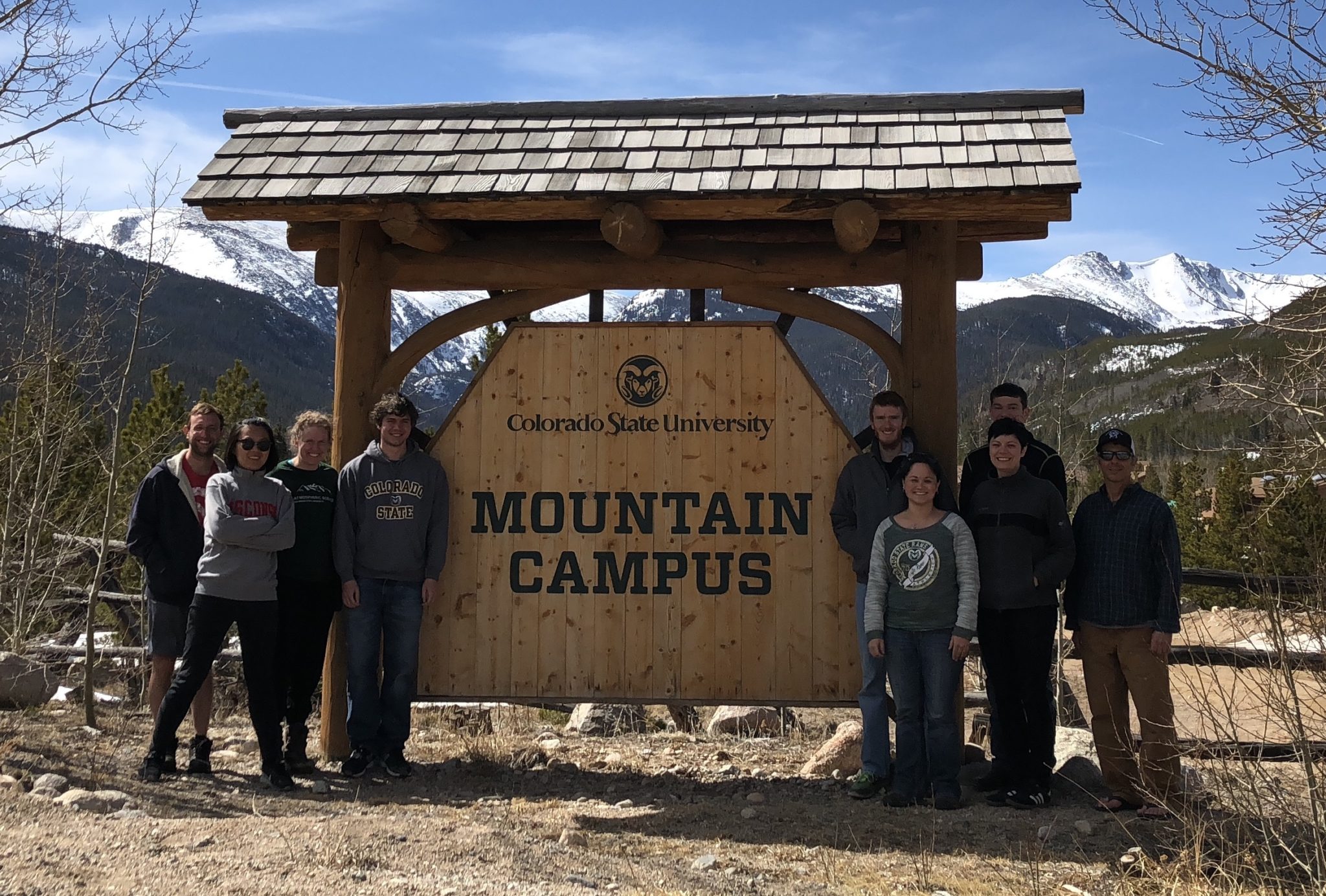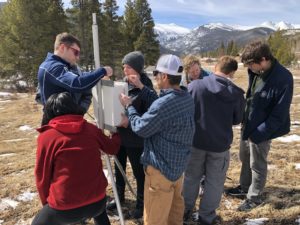
Living in Colorado, the Rocky Mountains and foothills greatly influence our daily lives, regardless of whether we ski or snowboard. The mountains affect the weather we experience every day.
“Mountain weather, downslope windstorms, mountain wave turbulence, beautiful mountain wave clouds, thunderstorms, and mountain-enhanced rain and snowfall are all important aspects of life in Colorado that we experience on a daily basis,” said Department of Atmospheric Science Assistant Professor Kristen Rasmussen, who teaches an experimental course on the influence of mountains on weather and climate.
Colorado State University’s Mountain Campus made it possible for Rasmussen to take her class into the field for hands-on learning and practical application of the course material.
During their two-day stay March 24-25, the students set up a weather station and collected observations, and Rasmussen gave three lectures on mountain meteorology. She also provided students some time to learn on their own.
“I encouraged the students to take hikes into the surrounding region to integrate the course material with the natural mountain environment,” she said.
Mountain Campus experience
Located roughly two hours west of Fort Collins at 9,000 feet, the Mountain Campus flanks two national forests and Rocky Mountain National Park. The 1,600-acre campus caters to academic field studies, education-focused conferences and mountain research. With its spectacular views and immersion in nature, the campus attracts many groups, including K-12 students, organizations holding professional training, military youth adventure camps, high school running camps, life-long learning programs and graduate program orientations.

“The Mountain Campus offers groups comfortable, affordable housing and dining options, a challenge ropes course program, friendly staff and an amazing setting in a remote mountain valley,” said Mountain Campus Director Seth Webb.
The site typically serves more than 140 groups and 6,000 visitors each season. Many natural resources majors are required to attend a four-week summer session at the Mountain Campus, which will bring 300 Warner College of Natural Resources undergraduates this year. The campus also hosts Eco Week, an environmental education program, for more than 25 regional elementary and middle schools.
“We would like to continue to see a broad utilization of the Mountain Campus by a variety of CSU academic and non-academic departments as well as outside organizations, and are keen to increase the level of research activity on campus,” said Webb.
Highlight of the class
Rasmussen, who plans to take future classes to the Mountain Campus, said the field trip was the highlight of the class for some of her students.
“Our trip to the Mountain Campus was a great chance to get outside and apply the concepts we were learning about mountain-atmosphere interactions in real-time,” said Stacey Hitchcock, a graduate student in Rasmussen’s class.
Learn more about CSU’s Mountain Campus by visiting the website or contacting Director Seth Webb at seth.webb@colostate.edu.